
Politics
19:07, 28-Aug-2017
China, India end Donglang standoff ahead of BRICS summit
By Wang Lei
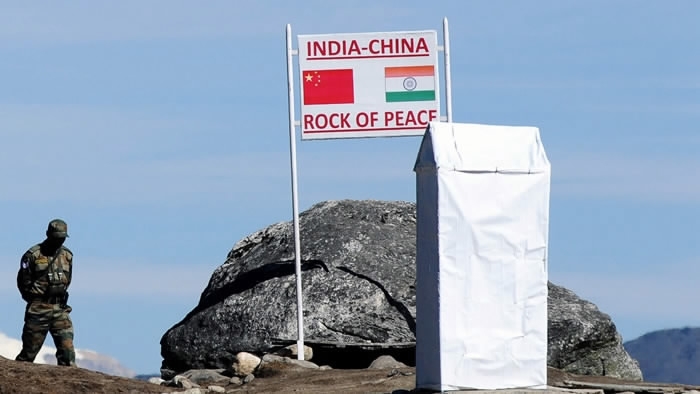
The Chinese Foreign Ministry confirmed on Monday afternoon that India had "withdrawn all its trespassing personnel and equipment" from the Donglang area, ending the border standoff that had lasted over two months.
The resolution of the disputes comes at a crucial time as leaders of the two countries prepare to attend a BRICS summit in China's coastal city of Xiamen on Sunday. BRICS countries include Brazil, Russia, India, China and South Africa.
China has repeatedly stressed that the only way to resolve the standoff is for India to "immediately and unconditionally" withdraw its border troops from an area in which it claimed they had trespassed.
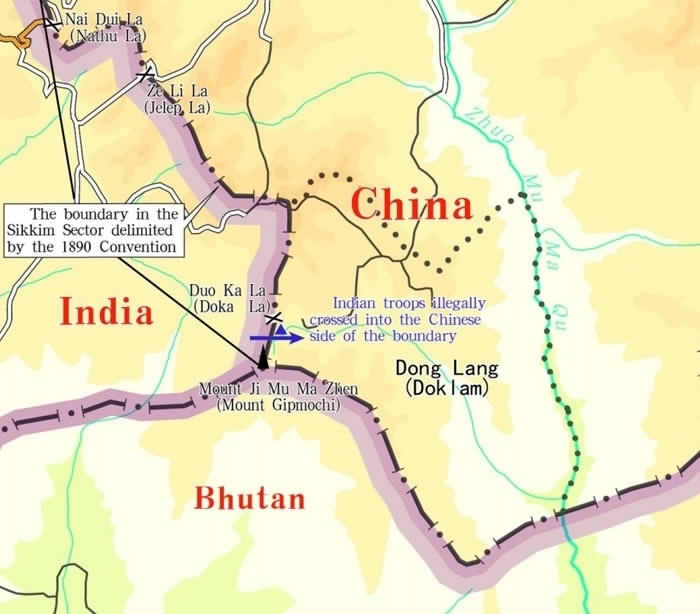
A sketch map of the site of the current standoff between China and India. /Photo via Chinese Foreign Ministry
A sketch map of the site of the current standoff between China and India. /Photo via Chinese Foreign Ministry
Beijing: The Indians have withdrawn
"As of 2:30 p.m. or so on August 28, India had withdrawn all its trespassing personnel and equipment back to the Indian side of the border," Chinese Foreign Ministry spokeswoman Hua Chunying said at a regular press briefing on Monday. "The Chinese personnel on site have confirmed this."
Hua added that China will "exercise its sovereign rights in accordance with historical border agreements" between the two sides and safeguard its territorial sovereignty.
After the start of the standoff on June 18, China made representations to India through diplomatic channels many times, urging "immediate withdrawal of India's trespassing border troops," she noted.
"In the meantime, the Chinese military took strong measures to safeguard China's territorial sovereignty and legitimate rights and interests," the spokeswoman said.
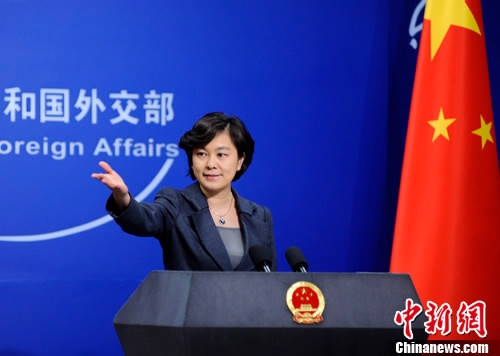
Chinese Foreign Ministry spokeswoman Hua Chunying. /Photo via Chinanews.com
Chinese Foreign Ministry spokeswoman Hua Chunying. /Photo via Chinanews.com
She called on India to "observe their historical border agreements and the basic principles of international law" and work together with China to maintain peace in their border regions, saying that the Chinese government attaches great importance to developing friendly relations with India.
Earlier on Monday, India's Ministry of External Affairs (MEA) also said the two countries had agreed to end the standoff.
"In recent weeks, India and China have maintained diplomatic communication" regarding the incident, MEA spokesman Raveesh Kumar tweeted. "On this basis, expeditious disengagement of border personnel at the face-off site at Doklam (Donglang) has been agreed to and is on-going."
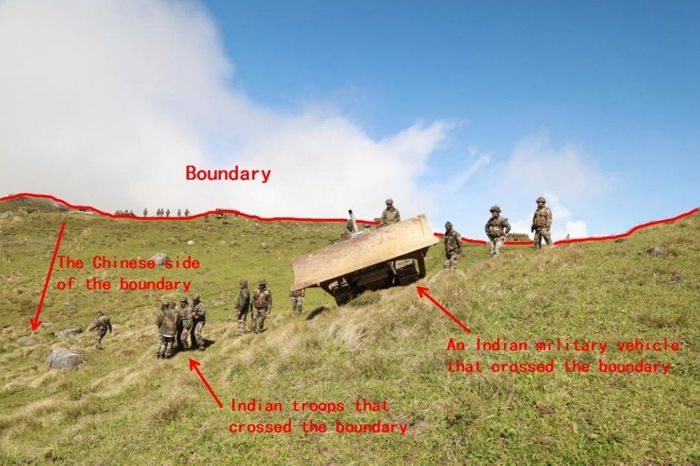
Annotated photo released by the Chinese Foreign Ministry on August 2.
Annotated photo released by the Chinese Foreign Ministry on August 2.
71-day standoff
According to the Chinese Foreign Ministry, the standoff began on June 18 after over 270 Indian border troops crossed into the Donglang area, over which China has "indisputable sovereignty".
India cited "serious security implications" arising from China's road building in the area and "protecting Bhutan" as justifications for its move. China called the claims "untenable".
Beijing says the territory clearly belongs to China according to the Convention Between Great Britain and China Relating to Sikkim and Tibet signed in 1890 and that the China-Bhutan boundary issue has nothing to do with India.
As of August 7, there were still 53 Indian troops and one Indian bulldozer in Chinese territory, the ministry said earlier this month.
As September's BRICS summit draws closer, many began to worry that the China-India dispute would overshadow the event.
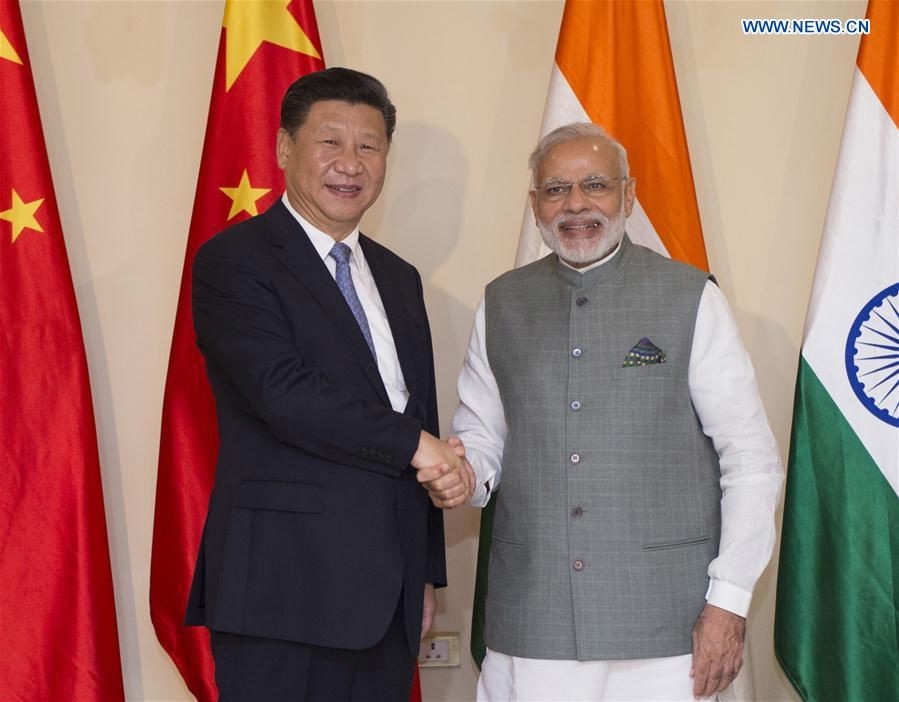
Chinese President Xi Jinping (L) meets with Indian Prime Minister Narendra Modi in the western Indian state of Goa, October 15, 2016, during the 8th BRICS summit. /Xinhua Photo
Chinese President Xi Jinping (L) meets with Indian Prime Minister Narendra Modi in the western Indian state of Goa, October 15, 2016, during the 8th BRICS summit. /Xinhua Photo
Sudheendra Kulkarni, chairman of the Observer Research Foundation Mumbai and an aide to India's former Prime Minister Atal Bihari Vajpayee, recently called for an "early and amicable resolution" of the crisis in a commentary on The Quint.
"The very credibility of BRICS would be called into question if our two countries allowed the dispute to be escalated into an armed conflict," he said, stressing that peace and friendship between the two countries is "very precious" for all neighboring countries and the world.
In response to whether Indian Prime Minister Narendra Modi would attend the BRICS summit amid the standoff, Hua Chunying reiterated last Wednesday that "immediate and unconditional withdrawal of all the trespassing personnel and equipment serves as the prerequisite and basis for the settlement of this incident."
As this "prerequisite" has now been met, the 71-day standoff appears finally to be at an end, which is good news for the Xiamen summit.

SITEMAP
Copyright © 2018 CGTN. Beijing ICP prepared NO.16065310-3
Copyright © 2018 CGTN. Beijing ICP prepared NO.16065310-3